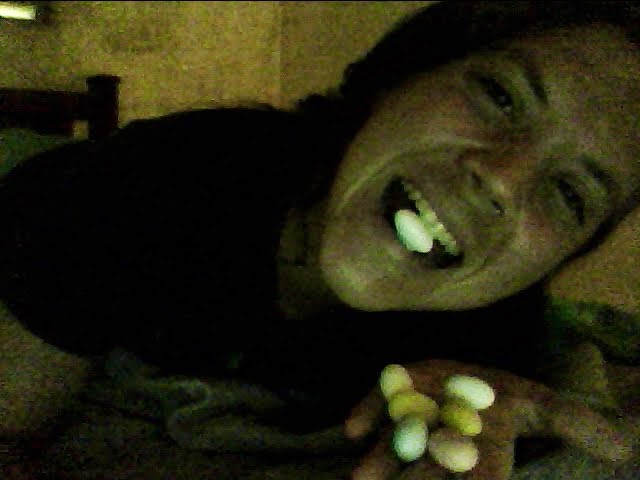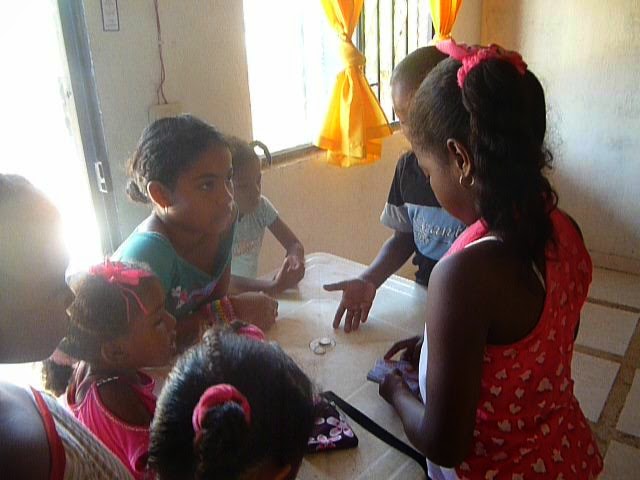I have a ton of information now on Libertad and I am not even really sure where to start and how exactly to share it with everyone. To me, every detail seems important, but I don’t want to bore anyone. I suppose that’s the beauty of a blog- you can just skip around and read whatever you want.
To begin, here is a video I made while traveling around on motorcycle one day, announcing a community meeting. This will give you an idea of what the town is like and a few tid bits of information that I added. I tried to put some of the typical music we listen to here but youtube kept muting my video for copyright reasons, so instead it has a few of my brother’s tracks (see
HistoryLibertad is a township in San Onofre, Sucre, on the Caribbean coast in Colombia. There is between 7,000 and 8,000 inhabitants and it is a community comprised almost completely of Afro descendants. Libertad was founded on January 6, 1933, making it 81 years old. Originally it was called Mambú and the land was in the hands of a few wealthy families, but the people who actually lived there and worked the land fought for it and won, changing the name to Libertad (which means freedom).
The town began very small, with just several houses, but little by little more families moved in and built their homes. The original entrance to Libertad was by river and later they built the road that connects Libertad to the highway about twenty kilometers away (I’m totally making up that number… I don’t know how far away the high way is. It’s about one hour on motorcycle.) Electricity was brought to Libertad in 1982 and cell phone service arrived in 2000.
A Time of ViolenceAlso in the year 2000, the paramilitaries arrived. Paramilitary presence had been noticed since 1997, but in 2000 they came to stay. Libertad is the ideal location for illegal groups involved in smuggling since they are at the end of a not-so-commonly-traveled road that leads to a not-so-touristy port. The man in charge was called El Oso, The Bear. He lived just outside of the community but was the one calling the shots, making the rules for the town, and solving the conflicts between neighbors. The people experienced many forms of violence: homicide, rape, humiliation, forced selling of land, animals, and equipment, among other awful acts. While El Oso and the paramilitary troops were present everyone lived in fear and all trust within the community was broken. To this day, the community is still struggling to rebuild this trust and confidence that was lost.
One thing that sets Libertad apart from many other communities affected by the violence in Colombia is that they were a community that was resistant. While many other communities were forced to leave their homes or experienced massacres, the people of Libertad refused to leave, even under the oppressive thumb of the paramilitaries. The community is proud of the fact that they were the ones who forced the paramilitary troops to leave Libertad: the men closed off all the entrances to the town and checked every vehicle that came and left; the women sat on their doorsteps with machetes across their laps, drinking coffee to stay awake, guarding their homes and the streets; upon reaching their breaking point, the town rallied together and even killed a member of the paramilitary group. Finally, a colonel from the neighboring state arrived with troops to assist Libertad in ridding the community of paramilitary presence once and for all.
Another thing that sets Libertad apart from other communities on the coast of Colombia is that they are the first community to have a pilot project of collective reparations approved by the government. These reparations include things like building a Multigenerational Center, building a sports complex, improving access to education and health care, recuperating culture, traditions, and social connections that were lost due to the oppression of the paramilitary troops, and guarantees that what happened in Libertad will never happen again. Unfortunately, the pilot was approved a year ago and very little has been actually completed.
EconomyThe economy in Libertad is pretty crappy right now. Before, there was a shrimp farm that employed about 200 people and really was a good push for the economy of all of Libertad. When that went bankrupt last year, it left many people without work and very few other options for generating money flow within the community. Another problem that makes money an issue in Libertad is the lack of land. It is very rare to find someone in Libertad who actually owns land or has their own place to farm; most people rent or borrow land. Unfortunately, most of the wealthy people who own the land (and do not actually live in Libertad) are now using the land for cattle which uses large amounts of land and doesn’t benefit the community. When people do farm, the main crops are yucca, corn, rice, and ñame (I really have no idea how to say that in English).
Other people in Libertad live by taking people places or delivering messages on their motorcycle, selling fruit (mango season now!), chopping up cows or pigs on their front porch and selling meat, having stores in their living rooms, selling lottery tickets, fishing, teaching, or any other random thing that one can find to sell, fix, or exchange.
But the economic situation really is grave. Many people have left because of the lack of opportunities.
PoliticsAs a community of Afro descendants, Libertad has special rights because of the Law 70, which guarantees considerations such as collective land ownership and government support in conserving traditions. Another special right included in this law is the right to a community counsel as their form of government. A community counsel consists of an assembly and a board of directors. This group plans and directs projects for the community and also advocates for the rights of the community. Right now, a large part of the work that the counsel does is pushing the government entities to follow through on the reparations that they promised in the pilot project of collective reparations. The work that I do is mainly in support of the community counsel.
Public ServicesLibertad has a health center that is attended by a medical professional who has finished school but is required to lend a year of service in a rural community. He comes sometimes on Monday, sometimes on Tuesday, and he always leaves on Thursday. Let’s just say it is not a very consistent service and there is definitely a lack of medical attention in the community. Another major issue is the lack of ambulance. More than one person has died since I have arrived solely because they had no way to get the medical attention they needed in a timely manner.
Libertad has a school that includes elementary and high school. The school even has a library, but it is consistently locked. I’ve never seen it used. It also lacks special classrooms such as science labs.
There is no garbage service in Libertad, not to mention recycling. Most people burn their trash or throw it in the streets. There is lots of talk about cleaning the town up and we have done it a couple of times, but really the entire culture of trash disposal needs to be changed so that once the roads are cleaned, they stay clean.
The roads are not paved and when it rains they get filled with ravines and holes. The road in front of my house is always pretty nasty with water and a kingdom of mosquitoes. There is talk about the government starting to put in a drainage system. That would be pretty nice.
Libertad does have electricity, but it is not very consistent. It is recommended that at night, you unplug your refrigerator so that the lights and fans work better. The electricity probably goes out about once a week.
There is an aqueduct that brings water to Libertad, but it is not always turned on. I have not figured out still how they decide when to turn it on, but it generally is on in the morning around 7 am until noon. Some days longer. Some days not at all. When the water is on, everyone fills up all their tanks just in case it doesn’t come back for a few days. It is called agua gorda (fat water) because it has salt in it. It is not really for drinking. I have to buy my water to drink. People who don’t have water spigots in their homes have to either buy their water from people who have massive stores of it or look for it in the river. Some people also collect rain water, but since it hasn’t rained for a long time, that’s not really an option right now.
Transportation options in Libertad consist of bus, motorcycles, and donkeys. My personal favorite is motorcycle, but I have yet to try donkey…
So there it is: Libertad in a nutshell. This is my new home and my new community. I am grateful to be here, to be learning about the stories lived here, and to be a part of the current story that we are all living now.
There is so much more to share, but perhaps it would be better to come and experience it. I have an extra bedroom…
.jpg)












